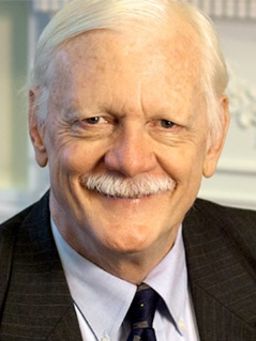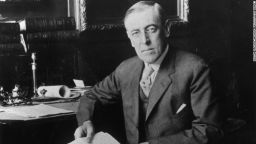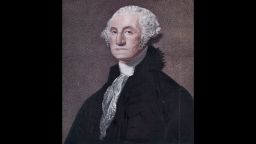Editor’s Note: William R. Keylor is professor of history and international relations at the Pardee School of Global Studies at Boston University. The opinions expressed in this commentary are his.
Story highlights
Princeton University is considering removing President Wilson's name in light of his segregationist beliefs
William Keylor: We should keep his racial views in mind and abhor them, but is that reason to wipe his name from memorials?
On the 100th anniversary of President Woodrow Wilson’s inauguration in 2013 I wrote an op-ed published in the Richmond Post-Dispatch reminding its readers of the retrograde racial views of our 28th president that few Americans were aware of (except for historians of the Wilson presidency who have mentioned it in their works). Later, professor Randy Barnett of the Georgetown University Law Center quoted extensively from my article to call for the removal of Wilson’s name from all public buildings in the country.

The issue of Wilson’s racial views and policies then virtually disappeared from the public discourse until students at Princeton University occupied the president’s office two days ago and demanded that all references to the university’s most famous faculty member and President be erased from the campus. As of this writing, the university has agreed to consider the renaming of buildings and organizations at Princeton that bear Wilson’s name.
My 2013 piece recalled the many examples of President Wilson’s abhorrent policies concerning race relations. He acquiesced in the resegregation of federal agencies that had been integrated during Reconstruction. Thenceforth, African-American federal workers were required to use separate dining facilities and restrooms and were prohibited from working alongside their white colleagues.

When a delegation of distinguished African-American leaders met with Wilson in the White House to protest the resegregation policies of his administration, the President lost his temper and blurted out, “Segregation is not humiliating, but a benefit, and ought to be so regarded by you gentlemen,” and showed them the door.
In 1915 Wilson organized a private screening in the White House of the silent film “Birth of a Nation,” which was based on a novel titled “The Clansman” by his friend and political backer Thomas Dixon. The film celebrated the Ku Klux Klan as a courageous defender of the Southern way of life and depicted African-Americans in a highly unfavorable light. The President later wrote the director of the film, D.W. Griffith, congratulating him on “a splendid production.”
Despite having brought to light this oft-forgotten aspect of Woodrow Wilson’s policies, which reflected his background as a product of the Old Confederacy and represent an indelible stain on his reputation, I want to issue a note of caution about the campaign to remove him from the Princeton campus and elsewhere in the country.
We must also recognize the positive side of his legacy: the federal income tax, the Federal Reserve Board, the Federal Trade Commission, the Clayton Anti-Trust Act, and the other notable achievements of his domestic policy known as the “New Freedom” that in many ways served as a precursor to Franklin Roosevelt’s New Deal.
In foreign affairs he promoted the spread of representative government, self-determination of peoples, and the peaceful settlement of international disputes. These aspects of his legacy should not be swept under the rug, as his racial views and policies have been in the past.
If we are to judge Woodrow Wilson solely on his backward racial views, then we should in fairness apply the same standard to other historical figures. Should we rename our nation’s capital and pull down the Washington Monument and the Jefferson Memorial because they honor presidents who were slaveholders?
Should we dismantle the Franklin Delano Roosevelt Memorial because the president it honors did not speak out during his time in office against the Jim Crow system in the Southern states that was kept in place by politicians of his own party, overlooking his domestic reforms and wartime leadership?
Should we rename the Fulbright Fellowships because they are named after a segregationist who voted against the Voting Rights Act of 1964 and the Civil Rights Act of 1965, overlooking his campaign on behalf of international educational and cultural exchange, his courageous opposition to McCarthyism, and his prominent role in opposition to the Vietnam War?
I believe the Confederate flag should be removed from public buildings as a symbol of the horrific history of slavery in the United States. But we should pause to ask ourselves if we ought to airbrush from official places of honor the names of all past leaders who either actively supported or passively tolerated racial prejudice and discrimination.
We must not sweep their racist views or policies under the rug, as has happened in the public memory of Woodrow Wilson. But neither should we ignore their other policies of which we approve. In short, we should retain a more nuanced, balanced view of the presidents and other public figures in our nation’s past, condemning them for their flaws but recognizing them for their achievements.
Join us on Facebook.com/CNNOpinion.
Read CNNOpinion’s new Flipboard magazine.


